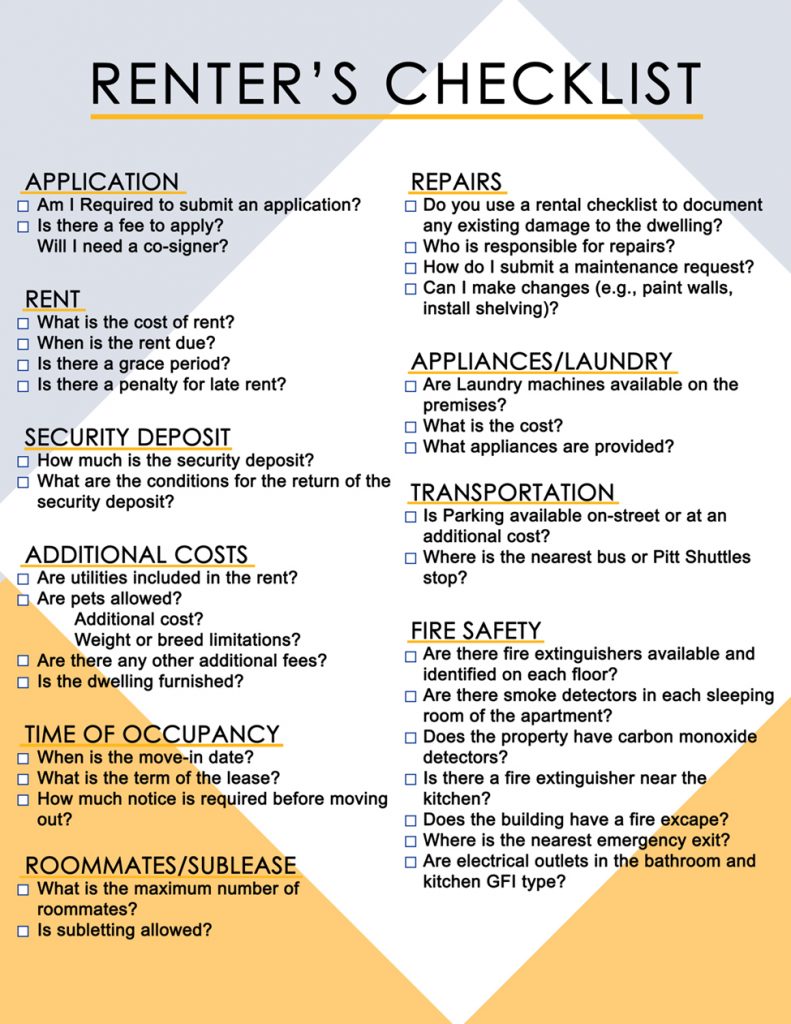Between scheduling your classes, joining student organizations, and trying to make sense of the fine print on your new lease, there are many things to remember before your big move off-campus. Dorm life is undoubtedly different than living in a college apartment. Still, by preparing with a checklist, you can avoid potential surprises or inconveniences and focus on settling into your new space.
Before Your Off-Campus Move
Moving off-campus offers incredible autonomy and opportunity, balanced with news risks, responsibilities, and challenges. But the decision to trade the routine and familiarity of a dorm dwelling for an off-campus abode is definitely an exciting one.
There are a few factors to consider before you commit to a contract or dive into decorating. The following are six things to do before moving off-campus to make the process as stress-free as possible.
1. Choose your new home wisely.
The truth is, not all landlords or locations are created equal, nor are rental prices always the best indicator of the quality of a space or the management overseeing it. For this reason, it’s recommended to carefully research apartments in advance, rather than getting tangled up with a landlord or lease that’s less than ideal. So before signing on the line or putting down a non-refundable deposit, do your best to vet the situation to ensure you can trust who’s in charge and feel confident it’s the right move for you.
2. Draft a realistic budget.
Along with the increased independence living off-campus offers, it’s important to note that it may involve greater financial responsibilities. The only way to know if you’ll handle the bills for your off-campus residence is to plan a preliminary apartment budget. Be sure to factor in all future expenses like a security deposit and monthly rent, utilities, groceries, transportation, and decorating costs. By planning, you can prevent a mid-semester panic from realizing you don’t have the funds to get you through to finals.
3. Anticipate additional responsibilities.
While living off-campus can give you more flexibility and new freedoms, some of the comforts you’ve enjoyed on-campus could disappear once you move. For example, you might lose access to your university meal plan, scheduled cleanings, and 24/7 laundry facilities. If any of these amenities will no longer be accessible, you’ll have to be proactive in finding nearby grocery stores, laundromats, or other necessary services. By anticipating these changes and additional responsibilities before you receive your keys, you’ll be more prepared to embrace all the best parts of being off-campus.
4. Choose the right roommate(s).
Often, roommate pairings on-campus are assigned by the college or university you’re attending. But when moving off-campus, you have the luxury of choosing the perfect roommates for you. Screen potential roommates to find someone ready to split financial responsibilities, and who you can count on to be there for the duration of the lease. A roommate who is a fellow student is likely to understand and respect your need to study and will hopefully provide support and accountability for a successful semester.
5. Create a roommate agreement.
Drafting an agreement among roommates is beneficial in making sure everyone shares the same expectations for living together. Items in this document may include how bills are divided, who makes sure those bills are paid on time, roommate chore charts, baseline rules (noise, houseguests, etc.), and any other pertinent information for your living arrangement. With this agreement, everyone can fully understand and commit to their responsibilities, and use this as a reference later on if someone is not upholding their end of the bargain.
6. Find your mode of transportation.
Maybe you used to live right across the lawn from your classes, but your new apartment is located across town. If that’s the case, you’ll need to think through your transportation options and determine what feels most convenient and cost-effective. Will you have your own car, or can you carpool with your roommate? Are you close enough to walk to campus, or bike there if you need to? Or do you need to look into bus routes or a rideshare service? With so many choices for your commute, you can easily have a plan before the start of school.

